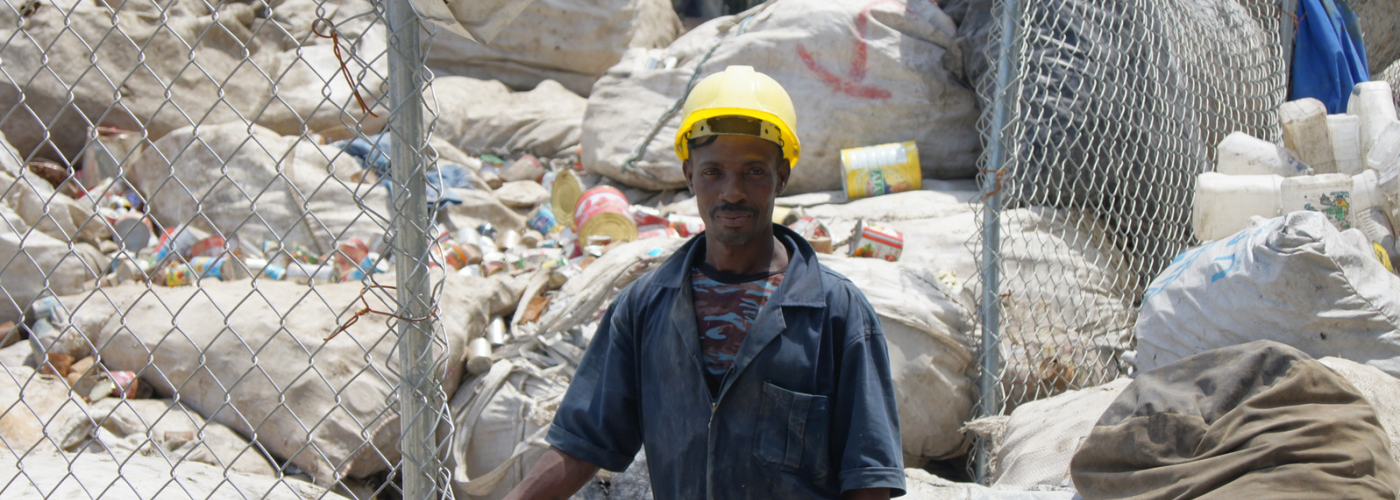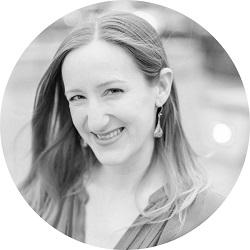Making the Local Business Case for Adopting Circular Economy Approaches
Event recording
Image

Chemonics International and the USAID Bureau for Humanitarian Assistance (BHA) held a webinar on Tuesday, November 29, 2022 to learn about market-based approaches for engaging the private sector in waste management, including lessons learned in supporting businesses to transition practices and services and specific ways that the circular economy can contribute to USAID’s localization priorities.
During the webinar, speakers shared successful models of how development programming and humanitarian practitioners can make the business case to local private sector actors for adopting circular economy approaches. BHA representatives shared practical market-based approaches applied in humanitarian assistance through the multilateral Joint Initiative on Sustainable Humanitarian Packaging Waste Management, such as a circular economy private sector landscape assessment in East Africa. The USAID Recycling in Jordan Activity team presented on its market systems approach in development programming to working with the private sector from both the supply and demand perspective to increase recycling competitiveness in Jordan.
Moderator:
Liz Keller, Senior Specialist, Economic Growth and Trade, Chemonics International
Image

Liz Keller is a senior specialist on the global economic growth and trade practice team at Chemonics International, where she facilitates cross-project learning and connections, supports business development in economic growth programming, and engages with the wider development industry. She specializes in enterprise competitiveness, with previous experience working at small business development centers and chambers of commerce, as well as experience designing multi-sectoral programs using a market systems approach. Ms. Keller has supported economic development efforts across USAID-funded programs, focusing the majority of her career in Europe and Eurasia. Ms. Keller possesses a bachelor’s degree in economics and sociology from the University of Virginia.
Opening Remarks:
Laura Meissner, Senior Economic Recovery and Markets Advisor, USAID's Bureau for Humanitarian Assistance
Image

Laura Meissner is a Senior Economic Recovery and Market Systems Technical Advisor seconded by the University of Arizona (UA) to support USAID’s Bureau for Humanitarian Assistance through an agreement with the University of Arizona. She provides expert guidance on assessing, mitigating, and repairing the effects of disasters on local markets and vulnerable populations’ livelihoods; on market-based relief and recovery; and on cash and voucher assistance. She has supported emergency response and recovery across a wide variety of contexts, including the Horn of Africa, the Sahel, the Venezuela regional response, Iraq, Syria, and Ukraine. Prior to joining UA and USAID in 2010, Laura managed the Minimum Economic Recovery Standards initiative and led practitioner peer learning initiatives for microenterprise development and financial services at the SEEP Network. She holds a B.S. in foreign service from Georgetown University and an M.A. in international development from American University.
Speakers:
Dr. Abdellatif Alshafie, Recycling Enabling Environment Lead, USAID Recycling in Jordan Activity
Image

Dr. Abdellatif Alshafie has extensive regional experience in donor-funded programs through his participation in multiple projects, in the Middle East and North Africa region. He has contributed towards the successful achievement of funding goals while helping recipient countries and beneficiaries attain the envisioned reforms and transformations. Dr. Alshafie has supported local development initiatives for socio-economic development; establishment of sustainable, hygienic, and environmentally sound infrastructure; integration of local communities; humanitarian aid; inclusion of refugees; equality and empowerment of women and girls; reliable public service delivery; and good governance.
Dr. Alshafie obtained his PhD in Environmental Engineering at Concordia University in Canada, and his master’s degree in Civil/Environmental Engineering at the McGill University in Canada. He obtained his bachelor’s degree in Civil Engineering at the University of Jordan.
Elise Bell, Program Specialist, USAID's Bureau for Humanitarian Assistance
Image

Elise Bell is a Program Specialist serving as an Institutional Support Contractor to the US Agency for International Development's Bureau for Humanitarian Assistance (USAID/BHA). As a member of the Supply Chain Management Division, she supports procurement actions, transportation requests, and other emergency response requirements. Since joining the legacy Office of Food for Peace in 2018, Elise has supported a range of initiatives centered around technology and innovation, systems development and reporting, as well as environmental sustainability and end-of-life waste management. She holds degrees from American University and Clemson University.



